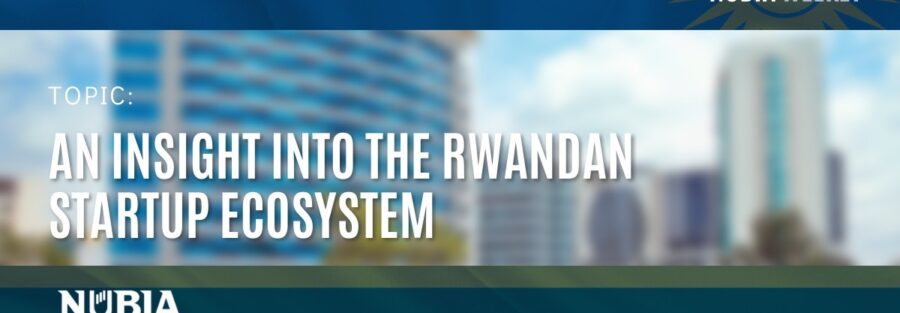The Rwandan startup ecosystem is a testament to the fact that technological solutions to local problems are one of the most effective ways to improve the overall standard of living of citizens in the country.
For instance, the startup called Zipline?
Zipline is a fully electric aircraft that flies directly to customers with down-to-the-second order tracking and precise, on-time deliveries. They have revolutionised logistics by delivering blood, food, medical supplies and all sorts of goods faster and with less harm to the environment.
Their products are autonomous electric drones that deliver the things people need. According to them, they want to take back control of the customer experience, taking back the days of handing products over to a stranger and hoping for the best.
This is a Rwandan-based startup and it is such an innovative solution but Rwanda wasn’t always a home to innovative solutions. In fact, according to StartupBlink, Rwanda offers an inspiring example of a country that was on the brink of failure and has revived to become one of the most successful and organised economies in Africa. Some of its proven methods include
Partnerships: Rwanda has partnered with the private sector and other stakeholders to open up its country for business development opportunities. A country focused on growing its ecosystem will always create easier ways for investors and international businessmen to invest in their country, visit and build businesses. For instance, Co-Creation Hub in collaboration with Google and Mojaloop Foundation launched the Fintech Innovation Project in Rwanda on the 11th of December 2021 to accelerate Rwanda’s digital transformation. According to CCHub, The Fintech Innovation Project was created as a unique opportunity to witness and discuss the revolutionary role the fintech industry is playing in Rwanda as well as future possibilities. Through the Mojaloop platform, the progressive policy framework was planned to be developed and contribute to an open digital payment ecosystem. The stakeholders in Rwanda understood that they could not do it alone. Partnerships like these are useful outcomes that directly contribute to the ecosystem and pave the way for future possibilities that cannot yet be analysed.
In February 2022 after the launch of the Fintech Innovation Project, it became obvious that the Fintech industry was growing massively. The Kigali International Financial Centre announced the debut of a $50 million Fund that focused on FinTech companies with proven technology operating in Africa. The new fund was backed by MyGrowthFund and Venture Partners. In 2023 when two of Africa’s largest fintech companies, Flutterwave and ChipperCash expanded into Rwanda, interesting comments were made by the founders of these companies. Jovani Ntabgoba, who leads Chipper’s presence in Rwanda, described Rwanda as not just a forward-thinking organisation but one that is ready. According to Flutterwave’s CEO, they are one of the few countries that has all licences for fintech startups. They are market-ready.
For fintech companies, it has reduced its licensing timeline, cut corporate income tax to 15% for fintechs instead of 28% paid in other sectors, and exempts them from paying 15% withholding tax on dividends, Jean-Marie Kananura, chief investment officer of Rwanda Finance, a government company overseeing the fintech drive, told Semafor Africa. “What we’re offering is ease of operation and to promote you when you are licensed,” he said
Competitive advantage is also a wonderful strategy
A very interesting strategy to learn from the Rwandan ecosystem is its competitive advantage. You see, Rwanda knows that it cannot compete with other African countries like Nigeria and Kenya in terms of size. The size of an ecosystem is always an advantage. The bigger the population, the bigger the market but that does not directly translate to how ready it is. Rwanda has a ready technology market and has worked hard to keep it that way. In May 2023, members of parliament voted in favour of the digital ID, and if things go according to plan, Rwandans may start to use such IDs in 2026. According to AllAfrica, The ID is also tipped to promote easier access to government services as well as a gateway to cross-border payments. Earlier in June 2023, it was also announced that the government is preparing to pilot 5G by the end of this year, aiming to leverage high-speed internet to deliver services more efficiently.
In 2022, in collaboration with the World Economic Forum, Rwanda became one of 16 countries to host a Centre for the Fourth Industrial Revolution (C4IR), working to promote emerging technologies such as artificial intelligence (AI), machine learning, blockchain, and the internet of things
A ready market in Africa is a great opportunity to attract investors and partners to further develop the economy. Ecosystem building as it is, is a game of strategy, employing the next best strategy to improve the ecosystem and fundamentally attract the changemakers that will perform more of the required strategies ahead.
Conclusion
Rwanda has done significantly well in partnering with stakeholders to build its ecosystem and utilising technology to develop new products that solve problems. She has worked hard to have a ready market and It will be great to see even more investments in more startups in Rwanda.




